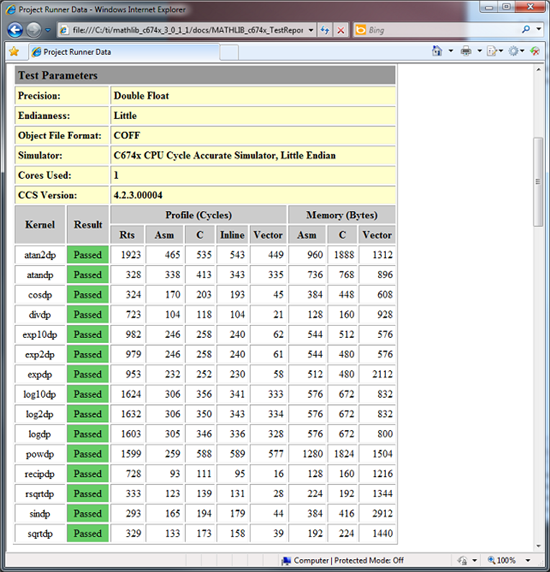With C674x DSP (TMS320C6746), can I know the required clock cycles for below math operations?
* sqrt ( double A ) =
* pow (double A, double B) =
And, what is the fastest way (for the performance) to do above math operations?
Thanks and regards.
Hayden Kim


